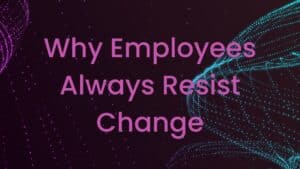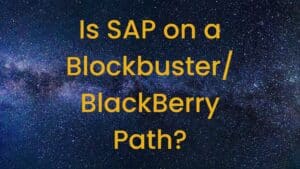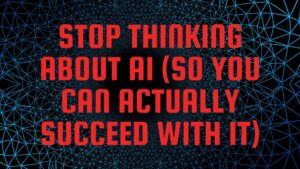“Every chain has got a weak link,” as Aretha would belt out in her hit song. In a recent blog titled The Strategy of ERP Implementation, I outlined several strategies that are a must for a strong foundation for a successful ERP implementation. Important strategies such as having an Organizational Change Management Strategy and an Executive Alignment Strategy.
In today’s blog we’re going to discuss the importance of having a diversified Supply Chain Strategy and the technology to power it. The crippling Covid-19 situation has brought supply chain diversification (or lack thereof) and supplier suitability to the forefront. Most of us understand all the prudent positive advantages associated with diversification – which fosters flexibility of choice of goods and services.
So, does it take a catastrophic event for companies to drastically rethink (or formulate) a Supply Chain Strategy? Probably so, and it’s likely this disruption will not fade as quickly as others have. Could the coronavirus force businesses to come up with, implement and stick to better supply chain strategies?
The answer is yes.
Table of Contents
ToggleUsing ERP To Consolidate Your Supply Chain to Single Sources
While it’s easy to get caught up in the convenience, consolidation and costs savings (economies of scale) often associated with this approach, it’s like driving a car without insurance. All is well and good until something unplanned happens. I won’t even go into some of the benefits of this approach because ultimately risk exposures outweigh benefits. Risk mitigation within your supply chain(s) should be a key component of your strategy against multiple risk categories (catastrophic, quality, capacity and multiple others). Companies that can only generate low volume orders or have highly specialized requirements are most at risk for having to use a single source supply chain.
In a recent inquiry to several of our manufacturing clients, more than 70% said that they were having global sourcing issues and dependencies which need to be managed and rethought. This trend is confirmed by SAP’s willingness to open access to SAP Ariba Discovery – so suppliers and buyers can communicate about fulfilling pressing sourcing needs. This is also among the many impacts the coronavirus crisis is having on manufacturing ERP systems.
While diversification can increase transaction costs, you’re insuring against disruption which can be hard to quantify to the bean counters, but essential to business continuity.
Supplier Base Diversification Within the Supply Chain and ERP
Diversification can be done efficiently while helping reduce risk, but it doesn’t come without a lot of work and analysis. This must include a cost benefit analysis, from which companies can often benefit from the perspective of an independent ERP consultant – especially one that has specific industry experience as well as cross-industry knowledge.
Modern ERP systems have enhanced the customer experience to the point where expectations are high. Consider presumptions about delivery times and even customization options. We’ve all been “Amazonized” into thinking everything gets delivered tomorrow. These types of consumer demands require agility and smart planning to compete. We’re talking the integration of technology (perhaps from multiple suppliers) combined with operationally based oversight.
The navigation of Covid-19 combined with the complex landscape of tariffs have formed the perfect disruptive storm, which not even cheap oil can make better. This type of significant disruption should be a lasting impetus or lesson learned that supports ongoing supply diversification. In the past it’s not been unusual for companies to revert to single source when waters are calm and short-term financial benefits within reach. Somehow it feels different this time around. The video outlines some of the ways to navigate your ERP implementation during these times of uncertainty:

Supplier Based Sustainability
There is a growing movement to source from socially responsible partners that mitigate negative environmental impacts (climate change is at the top of the list). The fact is that a growing number of consumers look for this and are willing to pay more. Picture yourself in the fresh veggie isle of Whole Foods. It also says a lot about a company’s DNA and what they want their business and mission to include.
A UK-based nonprofit called the Carbon Disclosure Project works with companies to quantify their impact on the environment which includes their suppliers. And at individual companies like McDonalds, the fries are crisping in energy saving appliances that claim to be reducing energy waste by 25%. Kudos to Dell, who has instituted a good recycling program for their unwanted (or your unwanted) electronic products. The aforementioned ramble emphasizes that finding your base of suppliers should probably include environmentally conscious partners. Perhaps the task of configuring the optimum supply chain has grown beyond the capabilities of the procurement department.
Next Steps
So aside from sourcing decisions and strategies, the ugly truth is not having a modern ERP system can and will limit your options (or how your monitor and manage them). That doesn’t mean you can’t diversify your suppliers, but transformative technologies like blockchain, the Internet of Things (IoT) and artificial intelligence (AI) have all made their way into powering supply chain options in convergent ways. We’re talking active RFID tags with their own batteries and sophisticated sensors – think of the new possibilities and advantages of modern asset tracking. We’re not talking about barcode scanners anymore.
There’s also the growth of third-party logistics providers (3PL) that can support a range of supply chain logistics from shipping, to warehousing to transportation. This model can give complete visibility/transparency to multiple supply chain aspects if you have the connective tech to go with it. 3PL organizations need to be experts in what they do to survive and thrive. This means you should expect advanced expertise and the elimination of investments such as warehouse space. The question then becomes, “at what cost?”
While none of us would choose to have to deal or rebound from Covid-19, use this time (or downtime) to re-evaluate how your supply chain is operating and where improvements can be made.
Should you find yourself needing help with analysis or digitalization efforts, know that we are an independent sounding board ready to help. We are used to managing change in ways that complement your goals and challenges. Please feel free to contact us to arrange a time to brainstorm ideas.





